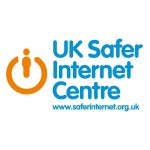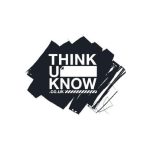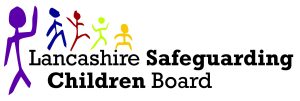Online Safety
At Bowerham, we understand the paramount importance of online safety for our children. The internet is an amazing tool which used holistically in our school. It allows you to learn, communicate, play, and be creative about anything you’re curious about, whether it’s dinosaurs, space, or how to draw cool pictures. It’s a resource that opens up a whole world of possibilities right at your fingertips!
However, understanding the internet is really important to stay safe. It’s like learning the rules of a game before we play it. When we understand how the internet works and how to use it responsibly, we can protect ourselves from things that might not be safe, like strangers who might not be who they say they are or websites that could be trying to trick us. By knowing how to keep our personal information safe, being careful about what we share online and understanding the risks, we can enjoy all the benefits about the internet while staying safe and having fun!
Under the curriculum guidelines, students are expected to develop a thorough understanding of how to use technology responsibly, respectfully, and securely.
Keeping Children Safe in Education (September 2023), identifies four areas of risk:
- Content: This refers to being exposed to illegal, inappropriate, or harmful online material such as pornography, fake news, racism, misogyny, self-harm, suicide, anti-Semitism, radicalization, and extremism.
- Contact: This involves being subjected to harmful online interaction with other users, including peer pressure, commercial advertising, and adults posing as children or young adults with the intention to groom or exploit them for sexual, criminal, financial, or other purposes.
- Conduct: This refers to online behaviour that increases the likelihood of, or causes, harm. Examples include making, sending, and receiving explicit images (consensual and non-consensual sharing of nudes and semi-nudes and/or pornography), sharing other explicit images, online bullying, and harassment.
- Commerce: This includes risks such as online gambling, inappropriate advertising, phishing, and financial scams.
At Bowerham, our school covers the four areas of risk detailed above and aims to:
Dedicated Lessons: Incorporating dedicated lessons or modules within the curriculum specifically focused on online safety, covering topics like cyberbullying, safe internet use, privacy, and digital footprint.
Collaboration with Parents/Guardians: Involving parents or guardians in the curriculum by providing resources (monthly online safety newsletter and home-school agreements) and guidelines to support online safety at home, fostering a collaborative effort between school and home environments.
Safety: Protect and educate children and staff in their use of technology and establishes mechanisms to identify, intervene in and escalate any concerns where appropriate. As well as providing a safe network in school with robust filters and monitoring.
Education: Our Bowerham curriculum ensures children from Early Years all the way up to Year 6 learn about Online Safety. Provide an up to date/relevant online safety curriculum, which supports the challenges and opportunities of new technologies and teaches children the knowledge, skills and understanding needed to be safe, respectful and responsible users.
Using Project Evolve alongside our online safety curriculum has allowed us to “evolve” the online safety messages that children and young people were being taught into something more appropriate; more meaningful; that encouraged reflection; that generated positive outcomes. Our education provides the right opportunity for discussion; prompted by appropriate questions to shape thinking and challenge misconceptions.
STEPS YOU CAN TAKE:
Open Communication: Remind your child they can always speak to you or another adult they trust if anything worries them online. Make sure they know they won’t be in trouble and can get help by talking to you or another trusted adult.
Set Clear Rules and Boundaries: Set rules on screen time, permissible websites, and app usage. Outline what information is safe to share online and what should remain private.
Use Parental Controls: Parental controls can help limit access to inappropriate content and manage screen time. For helpful step by step guides on parental controls follow this link: https://www.internetmatters.org/parental-controls/
Lead by Example: Set a good example by practicing safe internet habits yourself. Children often emulate their parents’ behaviour.
Use ‘SafeSearch’: Try using Safe Search Kids or another safe search engine. Most search engines have a safe search setting that can be activated in the settings (often a small cog icon)




Below you can find links to organisations which a prominent in ensuring online and internet safety. We really cannot stress how important it is for you to familiarise yourself with the content of these organisations:
https://www.saferinternet.org.uk/ we use their resources when we have internet safety week in school
https://www.thinkuknow.co.uk/ the online safety arm of CEOP (see below)
https://www.ceop.police.uk/Safety-Centre/ child online safety and online protection command (part of the national crime agency)
https://www.nspcc.org.uk/keeping-children-safe/online-safety/ the nspcc provide a wide range of information to help keep children safe online
https://www.lancashire.gov.uk/youthzone/need-to-know/online-safety/ Lancashire County Council’s online safety page
https://www.childnet.com/ Helping to make the internet a great and safe place for children. Advice, tips and resources for parents and carers, teachers and young people
Online Safety Newsletter Primary September 2022_Bowerham_01-09-2022
https://parentzone.org.uk/home online safety with a family focus
www.mentallyhealthyschools.org.uk
https://www.lancashire.police.uk/help-advice/online-safety/ information for adults as well as children
https://www.booksfortopics.com/internet-safety
ONLINE SAFETY NEWSLETTERS
Online Safety Newsletter April 2025_Bowerham_31-03-2025
Online Safety Newsletter Primary March 2025_Bowerham_28-02-2025
Online Safety Newsletter February 2025_Bowerham_31-01-2025
Online Safety Newsletter Primary January 2025_Bowerham_06-01-2025
Online Safety Newsletter December 2024_Bowerham_27-11-2024
Online Safety Newsletter Primary November 2024_Bowerham_01-11-2024
Online Safety Newsletter Primary October 2024_Bowerham_27-09-2024

